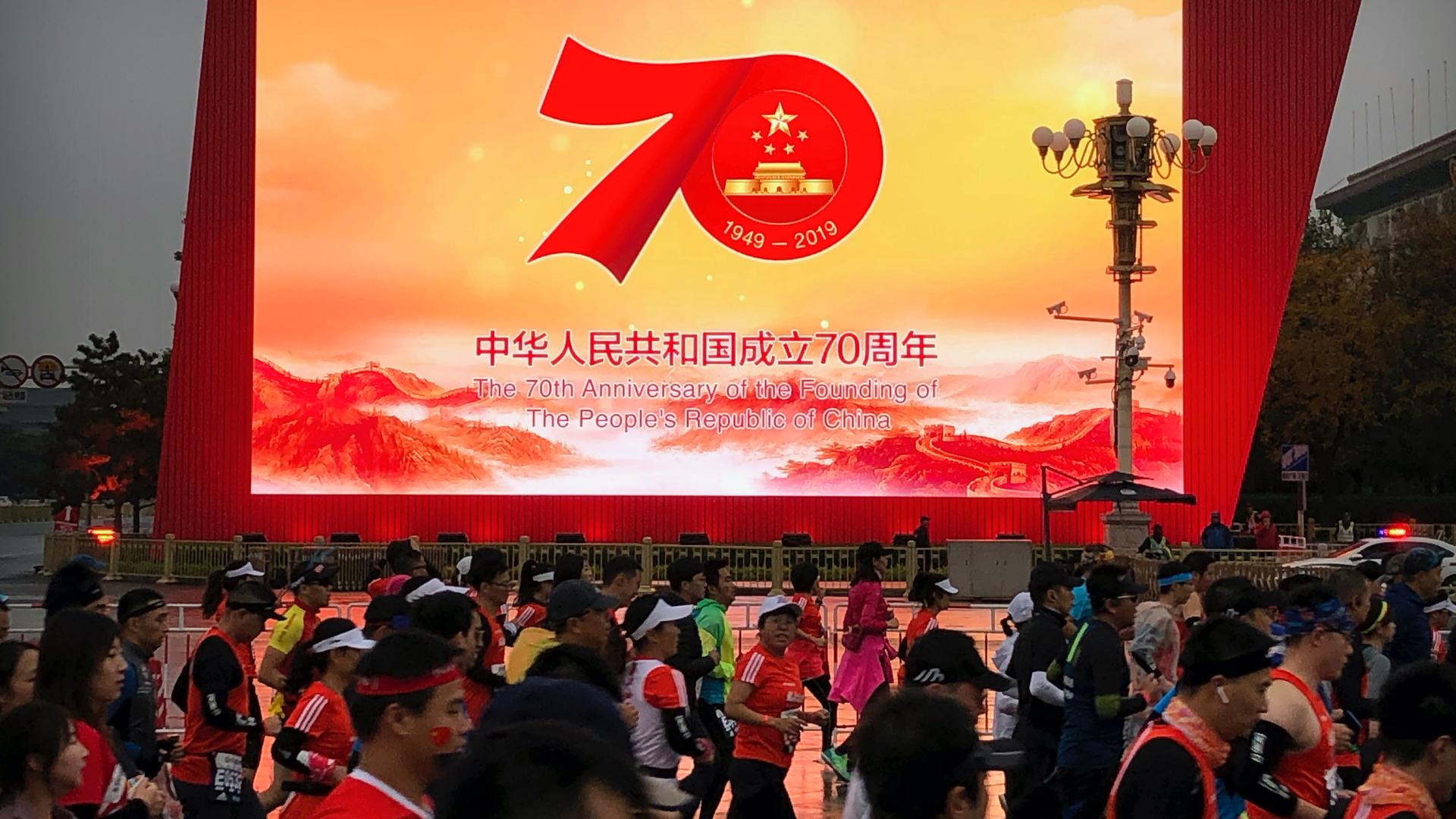Liang Jing was a top-ranking champion ultramarathoner. In China, they called him a running god.
So, the news that he and 20 other runners had died while racing in Gansu a few weeks ago was sobering.
“Every trail runner … it’s such a small community here; it hit home and a lot of us realized, especially us, more advanced runners, that [it] could have been us, as well,” said Kate Hill, an elite American runner who competes in China.
Ultramarathoning is a dangerous sport and runners accept a certain amount of risk when they compete. But Hill said she’s seen race organizers cut corners to save money.
“So, that means usually what lacks is safety. So, instead of having an appropriate amount of medical personnel on-site, they’ll have only half that, if any at all. Instead of having three ambulances, they might only invest money in one instead.”
“So, that means usually what lacks is safety,” she said. “So, instead of having an appropriate amount of medical personnel on-site, they’ll have only half that, if any at all. Instead of having three ambulances, they might only invest money in one instead.”
Just six months ago, she shared the winner’s podium with Liang Jing.
Related: A new film explores the stories of 6 men from China who survived the Titanic sinking
Even before the tragedy though, runners have been concerned about problems in the sport.
“No one really seems surprised, because we all know how much the trail-running world is lacking safety here,” Hill said.
She learned that firsthand in 2018 at her first 100-kilometer trail race.
“In the middle of a storm … it was, like, mudslides. I was doing river crossings up to my chest,” she said. “Still, to this day, one of the most dangerous, worst races I’ve ever done. I remember running along a cliff ledge. And I felt like I was going to be blown over a few times off the cliff.”
Running as a sport has only just taken off in China in the past decade. It’s easily accessible — you just need a pair of shoes — and a rising middle class is hungry for the sport. Plus, the government supports healthy lifestyles. Race organizers draw in runners with promises of beautiful scenery and prize money.
It’s a new way for local governments to attract tourism.
Related: China now allows 3 kids per family, but many couples say they can’t afford it
“There’s been a trend in trail running here of who can put on the longest race or the most challenging course. This becomes very dangerous. There just isn’t enough education yet about how to prepare for mountain trail running.”
“There’s been a trend in trail running here of who can put on the longest race or the most challenging course,” said Liu Yong, mountain climber and professor at Sichuan Tourism University. “This becomes very dangerous. There just isn’t enough education yet about how to prepare for mountain trail running.”
He said the runners in the Gansu race lacked mountain running expertise, but the organizers definitely share the blame.
A video made by a photographer who was there, shows Liang Jing and other top athletes running in shorts and light jackets. Poor planning by race organizers left many runners unprepared when extreme weather hit, and organizers missed the chance to call off the race. The runners died of hypothermia before rescue teams could find them on the mountain.
Will Ford is a sportswriter who has interviewed China’s top ultrarunners. He said that they are strong athletes who are increasingly competing on the world stage.
“The one thing that they lack is the experience of trying to mitigate and manage and understand risk in the mountains when it comes to weather, which is a pretty lethal combination,” he said.
Related: Chinese students in the US grapple with the rise in anti-Asian hate crimes
Racing casualties actually are common here, according to runners. Just a few weeks before the Gansu tragedy, a runner died from cardiac arrest during a race in the Gobi Desert. The day before, during a 500-kilometer race, a runner died of hypothermia.
In response to the tragedy, the government has issued a ban on extreme sports competitions. But Ford said that leaves more questions than answers.
“Well, what is their definition of extreme? I think they’re still figuring that out,” he said.
Professor Liu said he thinks the ban won’t last long, maybe three months.
“I think the approval process for organizers will be much stricter, especially about safety measures, as well as qualifications for runners,” he said. “But I hope that there will be more training and education about mountain sports for both organizers and participants.”
Related: Backlash from bubble-tea fans after China bans plastic straws in restaurants
After the tragedy, Hill and other runners in Shanghai ran together in memory of those who lost their lives. They said they want this to be a wake-up call for the sport worldwide.
“We’re all really kind of itching to be back on the mountains,” she said. “This is our passion. That’s what we do. But we all kind of have this agreement … we would rather have races be canceled and postponed, rather than have nothing done about the safety measures.”
Sadly, those 21 runners who lost their lives in Gansu won’t have that choice.
